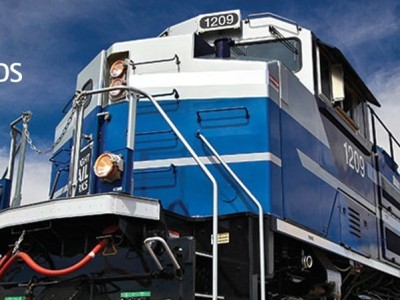Freight railroads open national collective bargaining process
Nov 01, 2024The National Carriers’ Conference Committee (NCCC), which represents the freight rail industry in national collective bargaining, announced today it delivered its bargaining notice to the 12 major rail labor organizations representing unionized rail employees — officially opening the industry’s national collective bargaining process.
The freight rail industry’s goal is to finalize agreements that build on its strengths: providing safe, high-paying jobs with professional growth opportunities, maintaining affordable and reliable customer service and continuing to invest in infrastructure and innovation.
In recent months, several Class I rail carriers and their union counterparts have reached — and in many cases, ratified — five-year local collective bargaining agreements ahead of the national bargaining round. Additional ratifications are pending. The terms of these early local agreements:
- Increase pay by 18.8% over five years, and based on current inflation projections, will translate to real wage growth for covered railroaders along with pay certainty for the life of the contract.
- Enhance world-class health and welfare benefits with no increase to the employee contribution rate. In 2025, health care premiums will decrease to about $277/month, well below the national average of more than $500/month for employer-provided family coverage.
- Give employees access to more paid vacation time earlier in their careers.
These new local agreements, which already cover thousands of rail employees, build on the historic 24% wage increase from the 2022 bargaining round. Taken together, wages for employees covered by these agreements will increase by nearly 50% (compounded) from 2020–2029.
The NCCC’s Section 6 notices propose early resolution of the bargaining round based on the pattern established by these recent local agreements. Prompt adoption of the pattern agreement terms will promote stability in the bargaining process and give freight rail employees certainty about their future compensation.
Freight railroads offer some of the most rewarding careers in industrial America. Today, most Class I rail employees earn between $90,000 and $140,000 in annual wages, depending on their craft, with average annual wages of $111,000. When benefits like retirement, sickness and health insurance are factored in, average total compensation, ranges from $135,000 to $190,000 annually, with an average of approximately $160,000.
Negotiations between railroads and unions occur under the Railway Labor Act (RLA). Given the essential role of freight rail in U.S. commerce and the economy, the RLA establishes a structured bargaining process to facilitate agreement and minimize service disruptions. Agreements subject to the RLA do not expire. Instead, they remain in effect throughout the collective bargaining process and for a period of time thereafter.
Similar Stories

NCCC, BWED announce national tentative agreement
View Article
CSX Corp. announces fourth quarter and full year 2024 results
View ArticleGlobal Railcar IoT Digitization revenues to exceed US $20B by 2032
The freight rail industry has been receiving significant investments to digitize operations. According to global technology intelligence firm ABI Research, revenues for rail car IoT in freight rail will surpass…
View Article
AAR reports rail traffic for the week ending January 18, 2025
View Article
Norfolk Southern reports more than $4.3B in industrial development activity in 2024
View Article
AAR applauds Patrick Fuchs STB Chairman designation
View ArticleGet the most up-to-date trending news!
SubscribeIndustry updates and weekly newsletter direct to your inbox!





